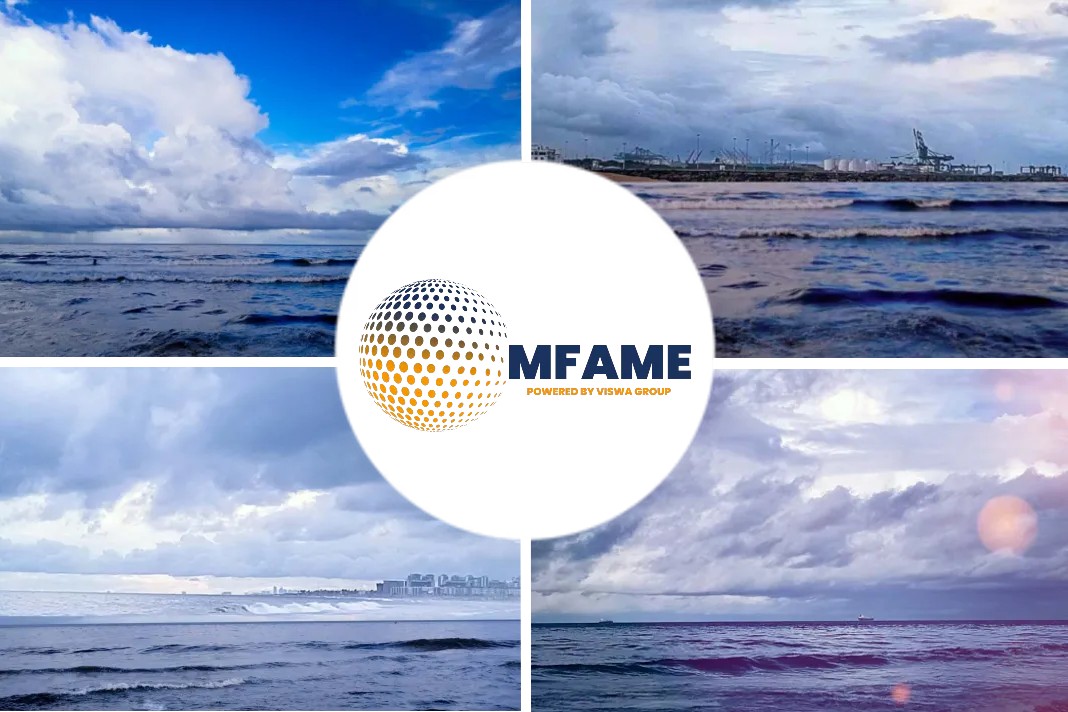In a major development, Intermarine UK has announced that they have struck an agreement with a Chinese manufacturer to make the Port of Portland one of the UK’s centers for scrubber installation, reports MarineLink.
The Agreement Details
- Intermarine President Slawomir Kalicki signed the agreement at Norshipping in Oslo with counterpart DB Wang deputy general manager of the Shandong Pure Ocean Technology based in Renhe Town in the Shandong province.
- The deal will see Intermarine act as an agent to Shandong and offer to install its scrubber systems to a wide variety of vessels to help them meet tough new environmental regulations.
- This includes bulk, container and cruise ships as well as RoPax and RoRo ferries, tankers, car carriers and fishing vessels.
How will it help shipowners?
“We see a big demand for scrubbers now the deadline is fast approaching,” said Kalicki.
“Working with Shandong we can offer ship owners and operators a first-class scrubber system and we can help ensure the system is approved by the ship’s Flag Administration and the approval is properly evidenced in the ship’s IAPP Certificate (International Air Pollution Prevention Certificate). Shandong’s scrubbers are state of art products and critically they have a very fast installation time saving up to 25 days on the average scrubber installation. Another big advantage is Portland Port’s ability to offer sheltered harbor for a wide variety of large ships, with multiple deep-water berths and low tidal ranges.”
The Specification Risk
According to an article published in Afloat, Mr Kalicki has reportedly said while some of the global merchant fleet of 95,000 ships are expected to opt for compliant fuel, particularly the cheaper blends, to meet the legislation this option carries high risks.
“The risk of off-specification fuel, the potential for engine failure and port state penalties, not to mention supply and price constraint make scrubbers an attractive alternative,” he said. “Scrubber installation offers the safest, most cost-effective way to meet the new targets in the medium and long term. Scrubber pay-back is estimated at one to three years depending on ship size, according to classification society DNV GL’s 2018 report Global Sulphur Cap 2020. Working with Shangdong we aim to position Intermarine’s Portland Port operation as one of the UK’s prime locations for scrubber installation.”
Since opening its Portland Port workshop, Intermarine UK has been able to provide an extensive range of engineering and fabrication services to the UK’s ship repair, refit, conversion and shipbuilding markets. The firm is also diversifying into other industries, including the energy sector and renewables, to optimise its specialist skills and production capabilities.
Background on ‘Scrubber’ Technology
- From 1 January 2020, the Marpol Treaty stipulates that the limit for sulphur in fuel oil used on board ships operating outside designated emission control areas will be reduced to 0.50% m/m (mass by mass) a steep drop from the previous 3.5% m/m limit.
- This will significantly reduce the amount of sulphur oxides emanating from ships and is designed to have major health and environmental benefits for the world, particularly for populations living close to ports and coasts.
- Scrubbers are used to remove particulate matter and harmful components, such as sulphur oxides (SOx) and nitrogen oxides (NOx) from the exhaust gasses generated as a result of combustion processes in marine engines, to implement pollution control.
- The scrubbing systems have been developed and employed to treat exhaust from engines, auxiliary engines and boilers, onshore and onboard marine vessels, to ensure that no damage is done to human life and the environment by toxic chemicals.
Did you subscribe to our daily newsletter?
It’s Free! Click here to Subscribe!
Source: MarineLink , Afloat






















